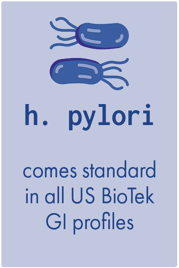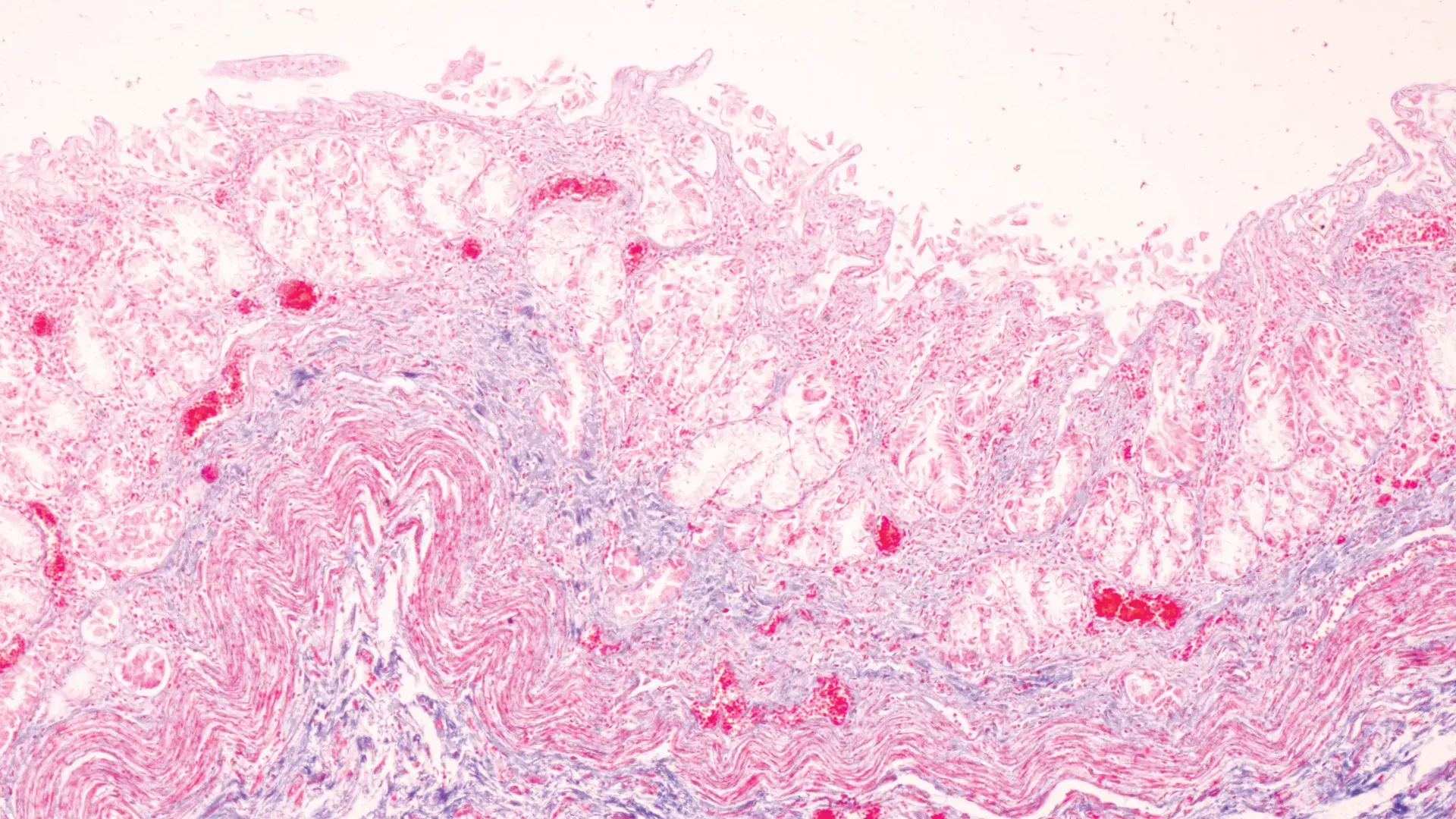4 Questions on NAD/NADH Testing Answered
Unlocking the Secrets of Cellular Energy
3 min read
![]() Dr. Andrea Gruszecki, ND
:
June 20, 2023 at 8:00 AM
Dr. Andrea Gruszecki, ND
:
June 20, 2023 at 8:00 AM

Approximately 20-25% of the American population may suffer from functional dyspepsia. Screening these patients for H. pylori and other potential gastric pathogens can guide clinical decisions regarding therapeutic interventions. Evaluating H. pylori virulence factors may help further guide dietary, nutritional, and lifestyle supports to minimize the risk of future episodes of functional dyspepsia and other disease risks.
Helicobacter pylori is an acid-tolerant bacteria found in the stomach of about 50% of people worldwide. H. pylori is not always pathogenic; it becomes pathogenic in approximately 15% of individuals. The pathogenic potential of H. pylori is determined in part by the presence of genetic "virulence factors". However, while individual human studies associate increased disease or cancer risk with each virulence factor, there is an equal impact on disease risk from host genetics and environmental factors.
Pre-disposing factors for H.pylori infection include functional dyspepsia, comorbid disease, psychological stress, or other lifestyle choices that alter the acidity or microbiome in the stomach (dysbiosis). Dysbiosis occurs when bacteria beneficial to the host are replaced in the microbiome by opportunistic or pathogenic bacteria or when certain bacteria native to the microbiome are able to overgrow. Dysbiotic bacteria produce compounds that can increase local inflammation or infection risk. Gastric infections often present as functional dyspepsia Symptoms of functional dyspepsia may include:
PCR testing for H. pylori in stool is highly sensitive and specific. PCR testing in stool samples is an easy way to screen patients simultaneously for the presence of other pathogens. If H. pylori is detected, it can be important to screen for genetic changes in the H. pylori bacteria because the presence of H. pylori virulence factors can increase the risk of severe disease or gastric cancer. The presence of individual "virulence factors" varies widely worldwide in different human populations.

Based on current evidence, it is reasonable to assume that the greater the number of virulence factors present, the greater the increased risk of disease or cancer might be. Co-infection of the stomach mucosa with the Epstein-Barr virus can further increase gastric cancer risks.
If virulence factors are present, or the treatment of H. pylori is otherwise clinically indicated, some natural agents may be used to support the restoration of normal gastric mucosal function or the eradication of pathogenic H. pylori. These agents may work best as adjunctive agents used with conventional therapies. Natural therapeutic interventions have been shown superior to medications such as anti-acid medications such as omeprazole or cimetidine and may include:
Screening patients with functional dyspepsia for H. pylori and other potential gastric pathogens can guide clinical decisions regarding therapeutic interventions. Evaluating H. pylori virulence factors may help further define long-term risks and guide dietary, nutritional, and lifestyle supports to minimize risk and improve gastrointestinal health.
H. Pylori testing is standard on US BioTek GI Microbiome Profiles. Learn more about the GI Microbiome Profiles at usbiotek.com/gi-microbiome.
References:
Chang WL, Yeh YC, Sheu BS. The impacts of H. pylori virulence factors on the development of gastroduodenal diseases.https://pmc.ncbi.nlm.nih.gov/articles/PMC6131906/
Francis P, Zavala SR. Functional Dyspepsia. [Updated 2022 Apr 21]. In: StatPearls [Internet]. Treasure Island (FL):https://www.ncbi.nlm.nih.gov/books/NBK554563/
Guo G, Jia KR, Shi Y, Liu XF, Liu KY, Qi W, Guo Y, Zhang WJ, Wang T, Xiao B, Zou QM. Psychological stress enhances the colonization of the stomach by Helicobacter pylori in the BALB/c mouse.https://pubmed.ncbi.nlm.nih.gov/20102319/
Höcker M, Hohenberger P. Helicobacter pylori virulence factors--one part of a big picture.https://pubmed.ncbi.nlm.nih.gov/14568748/
Iizasa H, Ishihara S, Richardo T, Kanehiro Y, Yoshiyama H. Dysbiotic infection in the stomach.https://pmc.ncbi.nlm.nih.gov/articles/PMC6195322/
Ivyna de Araújo Rêgo R, Guedes Silvestre GF, Ferreira de Melo D, Albino SL, Pimentel MM, et al. Flavonoids-Rich Plant Extracts Against Helicobacter pylori Infection as Prevention to Gastric Cancer.https://pubmed.ncbi.nlm.nih.gov/36120379/
Khalifehgholi M, Shamsipour F, Ajhdarkosh H, Ebrahimi Daryani N, Pourmand MR, Hosseini M, Ghasemi A, Shirazi MH. Comparison of five diagnostic methods for Helicobacter pylori.https://pubmed.ncbi.nlm.nih.gov/25848511/
Nbavi-Rad A, et al. (2022) The Effects of Vitamins and Micronutrients on Helicobacter pylori Pathogenicity, Survival, and Eradication: A Crosstalk between Micronutrients and Immune System.https://pubmed.ncbi.nlm.nih.gov/35340586/

Unlocking the Secrets of Cellular Energy

Short chain fatty acids (SCFAs) are organic acids produced by bacterial fermentation of dietary fibre and resistant starch. Enterocytes and...

Zonulin has emerged as a popular marker to assess the integrity of the intestinal mucosal barrier. Discovered by Dr Alessio Fasano, Zonulin...